Verb | Verbal Ability (VA) & Reading Comprehension (RC) - CAT PDF Download
What is Verb?
A verb is a doing word that shows an action, an event or a state. A sentence may either have a main verb, a helping verb or both. In other words, a verb is a word that informs about an action, an existence of something or an occurrence. The verb is the main word in a sentence. No sentence can be completed without a verb.
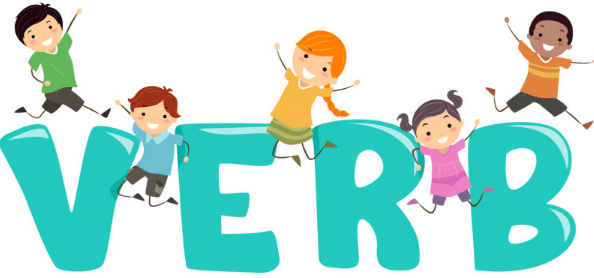
- The word ‘verb’ derived from the Latin word ‘verbum‘

Main Verbs or Action Verbs
Main verbs or action verbs are used to express action; something that an animal, a person or a thing does. In each of the following sentences, we only have a main verb.
- The sun shines.
Helping Verbs
As the name suggests, helping verbs help or support the main verb.
- You should complete the work by tomorrow. (should: helping verb; complete: main verb)
State of Being Verbs (Linking Verbs)
State of Being verbs state that something ‘is’. State of being verbs also known as linking verbs. Linking verbs explain a link between the subject of the sentence and a noun or adjective being linked to it.
- Example - The flowers are bright.
Understanding Verbs
The words: am, is, are, was, and were, belong to the verb “to be”. We use ‘am’ or ‘was’ with the pronoun ‘I’. We use ‘is’ or ‘was’ when the subject of the sentence is singular. We use ‘are’ or ‘were’ when the subject of the sentence is plural.
- Example - I was late for school yesterday.
Tenses
- A tense may be defined as that form of a verb which indicates the time and the state of an action or event.
- A tense is a form of verb which shows the time at which an action happens. (Latin word tempus = time).
- Tenses on the basis of time can be divided into 3 parts viz. past tense, present tense, and future tense.

Indefinite/Simple Tense
1. Simple Present
Simple Present Tense is used:
- To express habitual action.
He smokes.
I always take my tea without sugar.
It is used with the adverbs usually, generally, occasionally, rarely, always, often, sometimes on Sundays, once a week/month/year, etc.
- To express general or universal truths.
The sun rises in the east.
Water boils at 100°C. - To express a fact or something which is true at present.
All trains stop at this station.
She teaches English in a school. - To express future actions planned in advance, especially concerning a journey or programme.
The train leaves at six in the morning.
Schools close in May for summer vacation and reopen in June. - To introduce quotations with the verb ‘say’.
The notice says, “No parking.”
Keats says, “A thing of beauty is a joy forever.” - In running commentaries on sporting events.
Ajit passes the ball to Mohinder who kicks it past the goalkeeper. - In exclamatory sentences beginning with ‘here’ and ‘there’.
There goes the bell!
Here comes the train! - In ‘Time Clauses’ and ‘Conditional Clauses’ in place of future tense.
We shall start when the sun rises.
If you work hard, you will succeed.
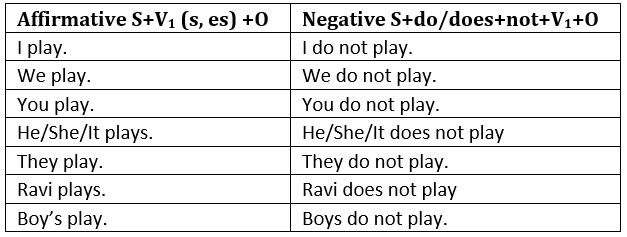
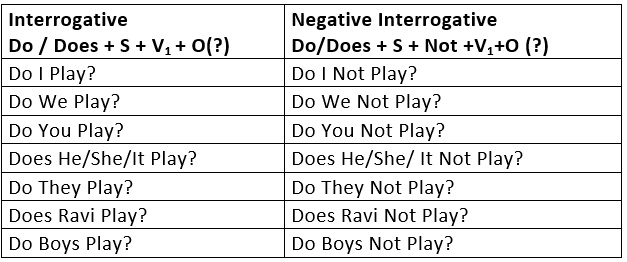
2. Simple Past
Simple Past Tense is used:
To express a past event or past action.
- The action is completely unrelated to the present.
It is therefore, used:
(i) When the time is given:
- I met him yesterday.
- She died in 1987.
(ii) When the time is not given, but it is implied and definite:
- I bought this pen in Bombay.
(iii) When the time is asked for:
- When did you meet him?
To express a past habit or regular action in the past.
- Every day he read a chapter of the Gita.
- He never smoked.
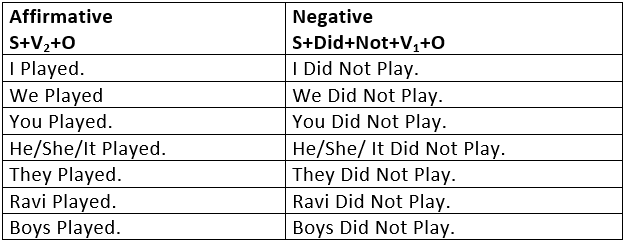
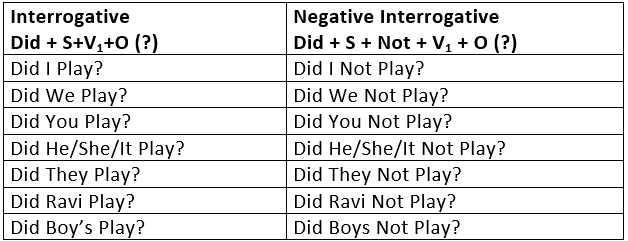
3. Simple Future
Simple Future Tense is used:
- To express an action that has still to take place.
He will play cricket tomorrow.
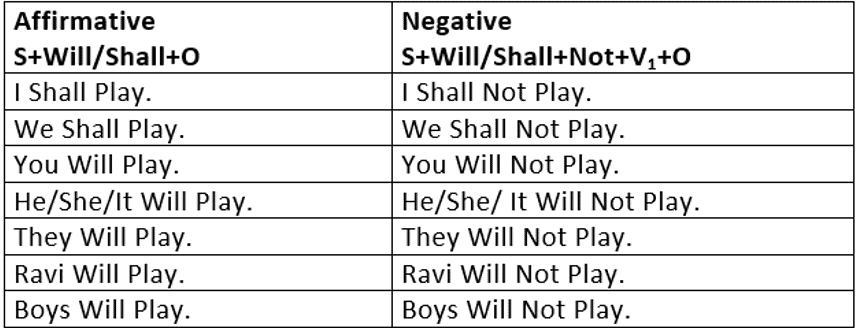
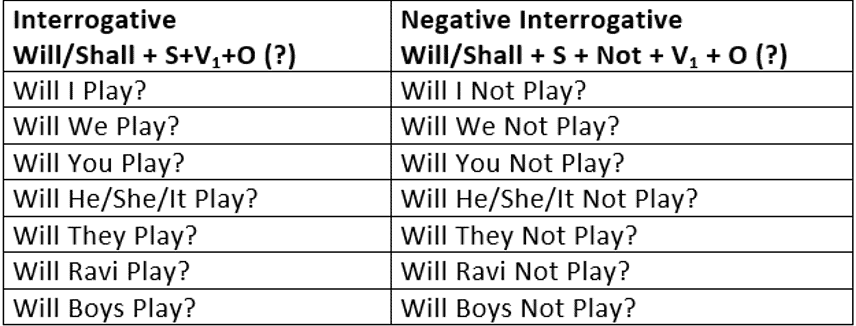
Continuous/ Progressive Tense
1. Present Continuous Tense
The Present Continuous is used:
- To express an action happening now at the time of speaking.
I am writing a letter.
She is reading a book. - To express an action in progress about this time but not necessarily at the time of speaking.
He is teaching English at the High School.
They are building a new house. - To express a definite arrangement in the near future.
I am going to London next week.
I am meeting her tonight.
The following verbs are not normally used in the present continuous tense:
- Verbs of senses: see, hear, smell, notice, recognize.
- Verbs of emotions: want, desire, love, hate, forgive, like, dislike, etc.
- Verbs of thinking: think, feel, know, mean, realize, understand, suppose, believe, remember, forget, expect, etc.
- Verbs expressing possession: have, own, belong, possess.
- Verbs like seem, appear, contain, consist, keep, etc.
These verbs are used in the simple present tense. They may, however, be used in the continuous tense with a changed meaning.
The headmaster is seeing the student in the afternoon. (meeting)
The judge is hearing the case tomorrow.Question for VerbTry yourself:Identify the tense used in the given sentence. “You are always working on your laptop.”View Solution
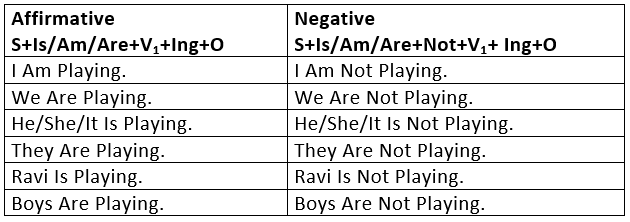
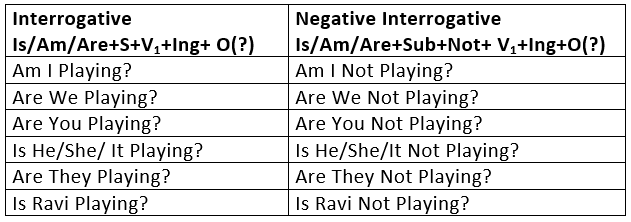
2. Past Continuous Tense
The Past Continuous Tense is used:
- To express an action that was in progress at some time in the past.
I was taking my bath at 8 o’ clock.
I was playing in the garden when he came. - To express two or more actions in progress at the same time.
While I was doing my homework, my brother was playing outside.
The students were talking when the teacher was writing on the black board. - To express an often repeated (undesirable) past action.
She was always taunting him.
He was always coming at odd hours.
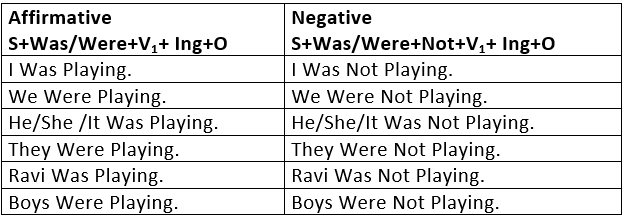
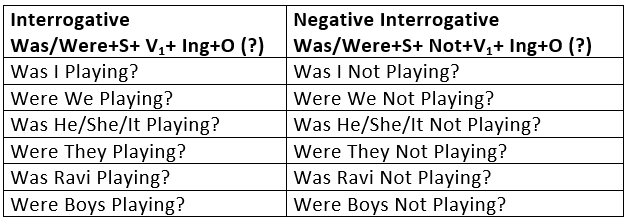
3. Future Continuous Tense
The Future Continuous is used:
- To express an action as going on at some time in future:
When I reach there, he will be reading a book. - To express future events that are planned:
He will be coming here for Diwali Puja.
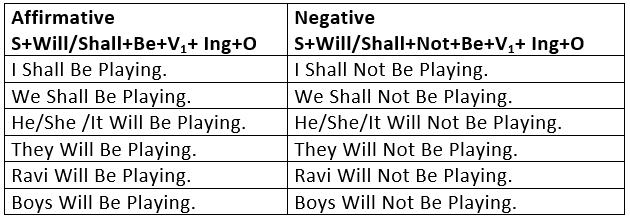
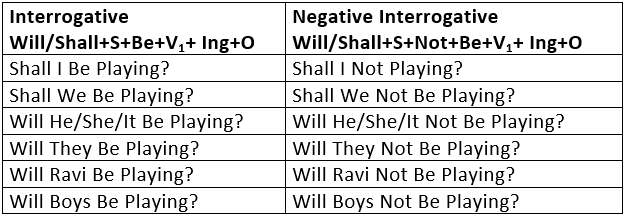
|
129 videos|371 docs|95 tests
|
FAQs on Verb - Verbal Ability (VA) & Reading Comprehension (RC) - CAT
| 1. What is a verb? |  |
| 2. How many tenses are there in verbs? |  |
| 3. Can a verb be used without a subject? |  |
| 4. What are the different forms of verbs? |  |
| 5. How can I identify a verb in a sentence? |  |
























